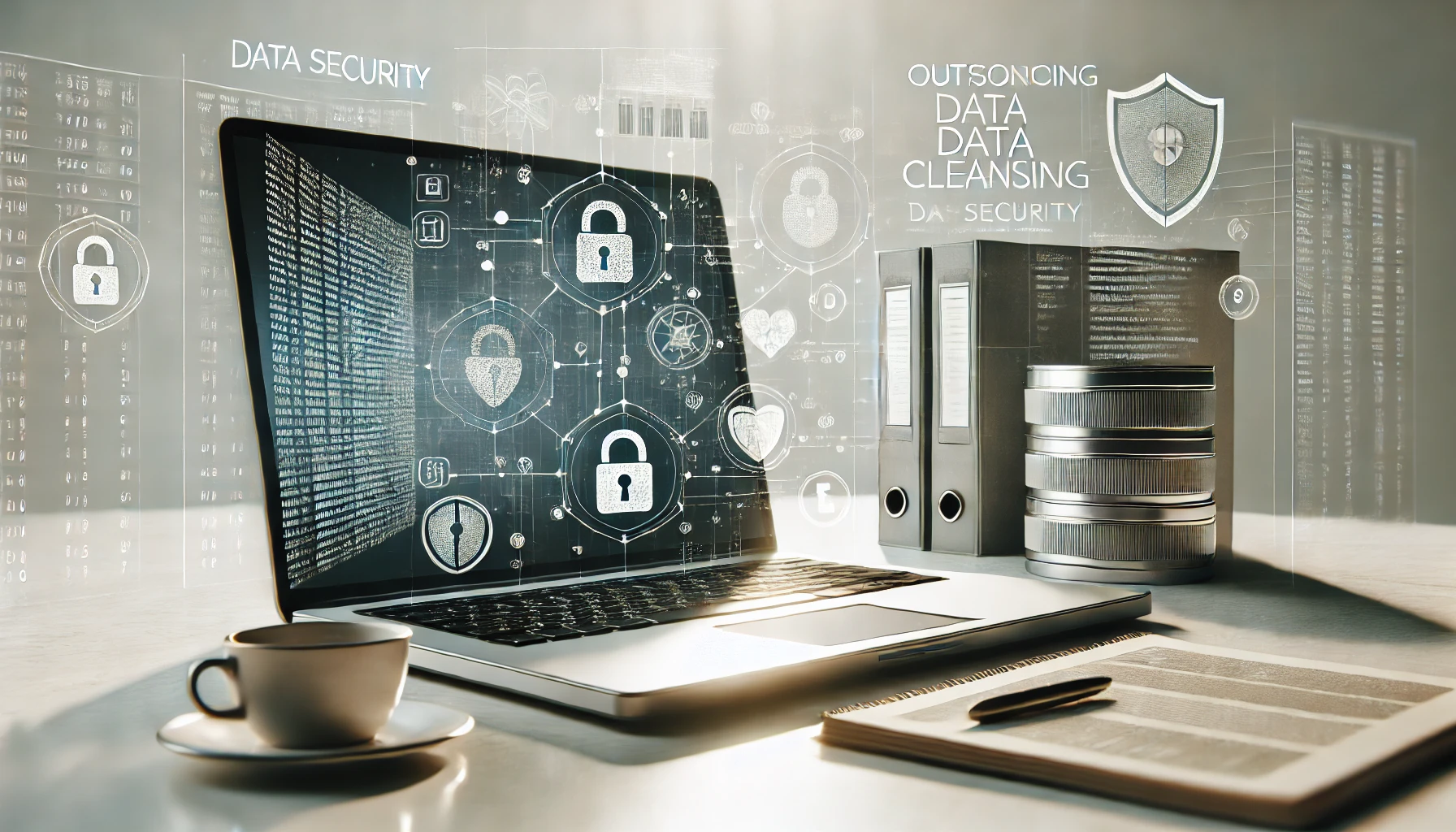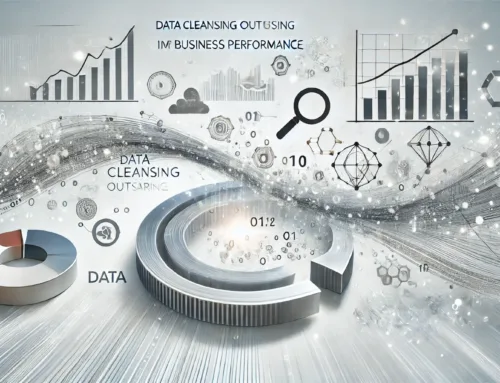When considering data security, have you ever pondered the potential benefits of outsourcing data cleansing help in data security? By entrusting this critical process to specialized professionals, you might be surprised at the positive impact it can have on enhancing your overall data security measures. Stay tuned to explore how this strategic approach can not only streamline data management but also fortify your defenses against evolving cyber threats.
Data Security Best Practices
When it comes to data security best practices, staying vigilant and proactive is key to safeguarding sensitive information. Implementing robust cybersecurity measures is essential to protect your data from potential threats. Conducting regular risk assessments can help identify vulnerabilities in your systems and processes, allowing you to address them promptly and effectively.
Cybersecurity measures encompass a wide range of strategies, including encryption, access controls, firewalls, and intrusion detection systems. These tools work together to create layers of defense against cyber attacks, minimizing the risk of unauthorized access to your data. Regularly updating and patching your systems is also crucial to ensure that any known security gaps are closed promptly.
Risk assessment involves evaluating the likelihood and potential impact of various security threats to your data. By understanding the risks your organization faces, you can prioritize security efforts and allocate resources effectively. Taking a proactive approach to data security best practices is key to safeguarding your sensitive information in today’s digital landscape.
Benefits of Outsourcing Data Cleansing
When considering outsourcing data cleansing, you can reap various benefits. Firstly, compliance with data privacy regulations is crucial, and outsourcing can ensure that your data is handled in accordance with these standards. Additionally, outsourcing can enhance the overall quality of your data while offering cost-efficient solutions for maintaining data integrity.
Data Privacy Compliance
Outsourcing data cleansing can offer significant benefits when it comes to data privacy compliance. By entrusting a specialized service provider with your data cleansing needs, you are not only ensuring data breach prevention but also enhancing risk assessment practices. These providers are well-versed in privacy regulations and data protection requirements, which can help your organization stay in compliance with the ever-evolving data privacy landscape.
When it comes to data privacy compliance, one of the key aspects is ensuring that personal information is handled securely and in accordance with relevant regulations. Outsourcing data cleansing to experts can assist in maintaining the integrity and confidentiality of sensitive data, reducing the likelihood of unauthorized access or misuse. Additionally, outsourcing allows for a thorough review of data handling processes, identifying and addressing any potential vulnerabilities that could compromise data privacy.
Enhanced Data Quality
To ensure the integrity and accuracy of your data, it is imperative to prioritize enhanced data quality. By outsourcing data cleansing, you can significantly improve accuracy and ensure reliable information within your datasets. Data quality plays a crucial role in the effectiveness of decision-making processes and overall business operations.
Outsourcing data cleansing tasks to professionals can lead to enhanced data quality through rigorous processes and advanced tools that are specifically designed to identify and rectify errors. These experts possess the skills and expertise required to cleanse data efficiently, resulting in improved accuracy and consistency across your databases.
With enhanced data quality, you can trust that your information is reliable and up to date. This reliability is essential for generating trustworthy reports, conducting thorough analysis, and maintaining a competitive edge in today’s data-driven landscape. By investing in outsourcing data cleansing for enhanced data quality, you are laying a strong foundation for sound decision-making and business success.
Cost Efficiency
Cost efficiency is a fundamental consideration for businesses seeking to streamline operations and optimize resource allocation. When it comes to outsourcing data cleansing to enhance data security, cost efficiency plays a crucial role in decision-making. By outsourcing data cleansing tasks, businesses can benefit from significant cost savings compared to maintaining an in-house team dedicated to this function.
Outsourcing providers often have specialized tools and expertise that can improve cybersecurity measures, ensuring that data is thoroughly cleansed and protected. This can help businesses avoid potential data breaches or security incidents that could result in costly consequences. Additionally, outsourcing data cleansing allows companies to scale their operations according to budget constraints, as they can choose services that align with their specific needs and financial capabilities.
Secure Systems and Compliance
Ensuring secure systems and compliance is paramount when it comes to data cleansing for maintaining integrity and confidentiality. Implementing robust cybersecurity measures is essential to safeguard sensitive information during the data cleansing process. Conducting regular risk assessments helps in identifying potential vulnerabilities and allows for proactive mitigation strategies to be put in place.
Threat detection mechanisms should be integrated into the data cleansing process to promptly identify and respond to any malicious activities or unauthorized access attempts. Utilizing data encryption techniques adds an extra layer of protection by encoding the information, making it unreadable to unauthorized users.
Compliance with relevant data security regulations and industry standards is crucial to ensure that data cleansing activities adhere to legal requirements and best practices. Upholding compliance not only reduces the risk of data breaches but also enhances the overall trustworthiness of the data cleansing process.
Importance of Regular Backups
Regular backups are crucial in safeguarding your data against unexpected events like cyber-attacks or system failures. By determining the appropriate backup frequency based on your data needs and risk assessment, you can ensure minimal data loss in case of a security breach. Implementing effective data recovery strategies is equally important to swiftly restore your information and minimize downtime in critical situations.
Backup Frequency Importance
Data security is paramount in today’s digital landscape. One crucial aspect of ensuring data security is the regular backup of your data. Data backup involves creating copies of your important information to protect against data loss. By implementing frequent backup routines, you add an extra layer of security to your data. Regular backups are integral as they allow you to recover data in case of a cyberattack, system failure, or accidental deletion.
When considering backup frequency, it is important to assess the nature of your data and the frequency at which it is updated or modified. High-priority data that undergoes frequent changes should be backed up more regularly compared to static data. Security measures such as encryption should also be applied to the backup files to enhance their protection in storage.
Data Recovery Strategies
To maintain the integrity of your data amidst potential threats, it is vital to have robust data recovery strategies in place. Data loss prevention should be a top priority for any organization handling sensitive information. Implementing a comprehensive backup plan is crucial in ensuring that your data remains secure and accessible in case of unforeseen incidents. Regular backups are essential for disaster recovery, enabling you to recover data efficiently without significant downtime or loss.
When developing data recovery strategies, consider factors such as the frequency of backups, the storage locations, and the verification processes to ensure data accuracy. It’s recommended to automate backups whenever possible to minimize human error and ensure consistency. Additionally, having off-site backups or utilizing cloud storage can provide an extra layer of protection against physical damage or cyber threats to your primary data storage.
Ensuring Data Confidentiality
To ensure data confidentiality when outsourcing data cleansing processes, it is imperative to implement robust security measures throughout the entire data handling lifecycle. Utilizing strong encryption methods is essential in safeguarding sensitive information from unauthorized access during data transmission and storage. Encryption helps scramble data into unreadable formats, ensuring that even if intercepted, the data remains protected. Additionally, implementing stringent access controls is crucial in limiting who can view or modify the data, minimizing the risk of breaches.
When outsourcing data cleansing, ensure that the service provider follows industry best practices for encryption and access control mechanisms. This includes using advanced encryption algorithms and enforcing strict access policies based on roles and responsibilities. Regularly monitor and update these security measures to adapt to evolving threats and vulnerabilities. By prioritizing encryption methods and access controls, you can significantly enhance data confidentiality when entrusting external parties with your data cleansing processes.
Incident Response and Data Destruction
When addressing incident response and data destruction in the context of outsourcing data cleansing, it is crucial to establish a clear and comprehensive plan that outlines protocols for managing and mitigating potential data breaches or incidents. Data breach prevention should be a top priority, with robust cybersecurity measures in place to detect and respond to any unauthorized access or breaches promptly.
Implementing a well-defined incident response plan is essential. This plan should include procedures for identifying the root cause of incidents, containing the impact, and restoring systems to normalcy. Regular testing and updating of this plan are necessary to ensure its effectiveness in real-world scenarios.
Furthermore, data destruction should be handled securely to prevent any residual data from being compromised. Proper methods for disposing of data-bearing devices and ensuring complete data erasure are critical components of data cleansing outsourcing. Partnering with reliable vendors who adhere to strict data destruction protocols can enhance security measures and reduce the risk of data exposure. Remember, a proactive approach to incident response and data destruction is key to safeguarding sensitive information.
Frequently Asked Questions
How Can We Ensure Data Accuracy After Outsourcing Data Cleansing?
To ensure data accuracy after outsourcing data cleansing, implement robust data validation procedures. Conduct regular quality control checks to verify the integrity of the data. Utilize automated tools for validation and establish clear communication channels with the outsourcing partner.
Are There Legal Implications for Failing to Securely Cleanse Data?
Failing to securely cleanse data can lead to serious legal implications regarding data privacy and compliance risks. Ensure utmost care in data handling to avoid potential legal consequences that may arise from inadequate data cleansing practices.
What Measures Are in Place to Prevent Data Breaches During Cleansing?
During data cleansing, data encryption and secure protocols are crucial measures to prevent breaches. Ensure encryption is applied before transmission and storage. Implement strict access controls and monitor activities closely. Regularly update security protocols to mitigate risks effectively.
Can Outsourcing Data Cleansing Lead to Data Loss or Corruption?
Outsourcing data cleansing can be a double-edged sword. While it may enhance efficiency, there’s a hyperbolic risk of data integrity compromise. Prioritize thorough risk assessment when considering outsourcing to mitigate potential data loss or corruption.
How Can Companies Verify the Credibility of Data Cleansing Service Providers?
To ensure data privacy and service reliability, thoroughly vet data cleansing providers. Review certifications, client testimonials, and security protocols. Conduct background checks on staff. Prioritize transparency and communication to establish trust in their processes and capabilities.




